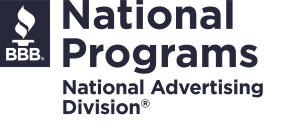
New York, NY – February 16, 2023 – The National Advertising Division (NAD) of BBB National Programs recommended that Oral Essentials, Inc. discontinue claims that its Lumineux Whitening Strips and Pen are “clinically proven to whiten teeth as well as the leading brand” and that it does so “without the harm associated with bleaches.” NAD was acting on a challenge brought by the Procter & Gamble Company (P&G).
Both parties market and sell teeth whitening strips and pens: Oral Essentials under its Lumineux brand and P&G under its Crest and ARC brands. P&G’s challenge focused on Lumineux marketing, which sought to highlight a key point of differentiation between the whitening products – that P&G’s products use hydrogen peroxide as the tooth bleaching agent, whereas Oral Essentials’ products do not.
Whitening Claim
NAD found that the claim that the Lumineux product is “clinically proven to whiten teeth as well as the leading brand” conveys the comparative message that Lumineux whitening strips whiten teeth as well as Crest Whitestrips, and that the Lumineux whitening pen whitens teeth as well as the leading whitening pen brand, and that this parity of product efficacy is clinically proven.
NAD noted that Oral Essentials has made substantial investments in over 60 clinical and laboratory studies in support of its products, and after reviewing the evidence NAD concluded that the clinically proven claim was not substantiated and recommended that it be discontinued.
NAD noted that nothing in its decision precludes Oral Essentials from making monadic claims about the teeth whitening efficacy of Lumineux whitening strips and pens for which it has adequate support.
Harm Claim
Though an advertiser has a right to make truthful and accurate advertising claims that may be at the expense of its competitors, such claims must be accurate and narrowly drawn. This obligation is especially important for claims that a competitor’s product causes harm, since “harm” has a powerful effect on consumers.
NAD determined that the claim that Lumineux products whiten teeth as well as the leading brand but “without the harm associated with bleaches” reasonably conveys:
- The message that tooth sensitivity that can be experienced with peroxide-based tooth whiteners and that tooth sensitivity, as a harm, is an unsafe or damaging condition; and
- A stronger message that Lumineux whitening strips and pens are safer than other teeth whitening products because they do not damage tooth enamel (and that whitening products that use peroxide bleaching agents, such as Crest Whitestrips, do).
NAD determined that Oral Essentials did not provide a reasonable basis of support for either of these messages conveyed by the challenged claim and recommended that they be discontinued.
NAD noted that nothing in its decision precludes Oral Essentials from making claims about tooth sensitivity or gum irritation for which it has adequate support.
In its advertiser statement, Oral Essentials stated that although it “respectfully disagrees with NAD’s decision . . . as a strong supporter of the self-regulatory process, Oral Essentials, Inc. will modify its advertising in accordance with NAD’s recommendations.”
All BBB National Programs case decision summaries can be found in the case decision library. For the full text of NAD, NARB, and CARU decisions, subscribe to the online archive.
About BBB National Programs: BBB National Programs, a non-profit organization, is the home of U.S. independent industry self-regulation, currently operating more than a dozen globally recognized programs that have been helping enhance consumer trust in business for more than 50 years. These programs provide third-party accountability and dispute resolution services that address existing and emerging industry issues, create a fairer playing field for businesses, and a better experience for consumers. BBB National Programs continues to evolve its work and grow its impact by providing business guidance and fostering best practices in arenas such as advertising, child-and-teen-directed marketing, data privacy, dispute resolution, automobile warranty, technology, and emerging areas. To learn more, visit bbbprograms.org.
About the National Advertising Division: The National Advertising Division (NAD) of BBB National Programs provides independent self-regulation and dispute resolution services, guiding the truthfulness of advertising across the U.S. NAD reviews national advertising in all media and its decisions set consistent standards for advertising truth and accuracy, delivering meaningful protection to consumers and leveling the playing field for business.
Contact Information
Name: Abby Hills
Email: press@bbbnp.org
Job Title: Director of Communications
JBS Appeals National Advertising Division Recommendation to Discontinue “Net Zero” Emissions Claims
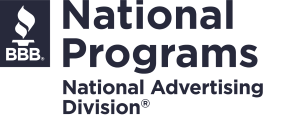
New York, NY – February 15, 2023 – In a challenge brought by the Institute for Agriculture and Trade Policy (IATP), a not-for-profit organization with the stated mission of working for fair and sustainable food and farm systems, the National Advertising Division (NAD) of BBB National Programs recommended that JBS USA Holdings, Inc., discontinue claims relating to its goal of achieving “net zero” emissions by 2040.
JBS is the second-largest food company and the largest animal protein producer in the world, with products that include boxed beef, ground beef, fresh pork, bacon, poultry, lamb, seafood, meat-based snack foods, and plant-based protein.
Aspirational environmental benefit claims create reasonable expectations on the part of consumers and, as a result, they require substantiation. When aspirational claims are tied to measurable outcomes an advertiser must be able to demonstrate that its goals and aspirations are not merely illusory and to provide evidence of the steps it is taking to reach its stated goal.
The challenged claims include:
- “JBS is committing to be net zero by 2040”;
- “Global Commitment to Achieve Net-Zero Greenhouse Gas Emissions by 2040”;
- “Bacon, chicken wings and steak with net zero emissions. It’s possible;” and
- “Leading change across the food industry and achieving our goal of net zero by 2040 will be a challenge. Anything less is not an option.”
NAD determined that JBS’ “net zero” claims reasonably create consumer expectations that the advertiser’s efforts are providing environmental benefits, specifically “net zero” emissions by 2040 a measurable outcome. Net-Zero is a recognized standard that guides companies in defining and establishing short and long-term science-based greenhouse gas emission reduction goals aligned with the legally binding 2015 Paris Agreement.
JBS provided evidence of a significant preliminary investment toward reducing emissions by 2040, including steps towards each of the stated “net zero” commitments, however, NAD concluded that the record did not support the broad message conveyed that JBS has a plan that it is implementing today to achieve net zero operational impact by 2040. Therefore, NAD recommended that JBS discontinue each of the challenged “net zero” claims.
NAD noted that nothing in its decision precludes JBS from making narrower truthful and not misleading claims regarding its efforts at researching potential methods for reducing emissions and any efforts it is undertaking to reduce emissions.
Further, regarding the claim “the SBTi recognized the Net Zero Commitment of JBS,” NAD found that the record demonstrates JBS’ notable, but preliminary efforts to establish SBTi-approved science-based greenhouse gas emission targets, but not an approved strategy to allow it to achieve net-zero climate impact by 2040. Therefore, NAD recommended that the claim be discontinued, but noted that nothing in its decision precludes JBS from making narrower truthful and not misleading claims regarding the steps it is taking to align its activities with SBTi criteria and its engagement with the SBTi process.
During the proceeding, JBS voluntarily permanently discontinued one challenged “net zero” claim, therefore, NAD did not review this claim on the merits.
In its advertiser statement, JBS stated that it “will appeal NAD’s decision” based on its disagreement that “the challenged aspirational claims communicate a message that it has a detailed plan in place today to achieve net-zero by 2040—17 years from now” and JBS’ belief that its claim are substantiated by “the foundational work” it has done to date.
Appeals of NAD decisions are made to the National Advertising Review Board (NARB), the appellate-level truth-in-advertising body of BBB National Programs.
All BBB National Programs case decision summaries can be found in the case decision library. For the full text of NAD, NARB, and CARU decisions, subscribe to the online archive.
About BBB National Programs: BBB National Programs, a non-profit organization, is the home of U.S. independent industry self-regulation, currently operating more than a dozen globally recognized programs that have been helping enhance consumer trust in business for more than 50 years. These programs provide third-party accountability and dispute resolution services that address existing and emerging industry issues, create a fairer playing field for businesses, and a better experience for consumers. BBB National Programs continues to evolve its work and grow its impact by providing business guidance and fostering best practices in arenas such as advertising, child-and-teen-directed marketing, data privacy, dispute resolution, automobile warranty, technology, and emerging areas. To learn more, visit bbbprograms.org.
About the National Advertising Division: The National Advertising Division (NAD) of BBB National Programs provides independent self-regulation and dispute resolution services, guiding the truthfulness of advertising across the U.S. NAD reviews national advertising in all media and its decisions set consistent standards for advertising truth and accuracy, delivering meaningful protection to consumers and leveling the playing field for business.
Contact Information
Name: Abby Hills
Email: press@bbbnp.org
Job Title: Director of Communications
National Advertising Review Board Recommends Genexa Discontinue or Modify Pediatrician Preference and Ingredient Claims for “Kids’ Pain & Fever” Medicine
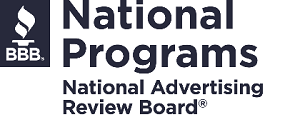
National Advertising Review Board Recommends Genexa Discontinue or Modify Pediatrician Preference and Ingredient Claims for “Kids’ Pain & Fever” Medicine
New York, NY – February 14, 2023 – A panel of the National Advertising Review Board (NARB), the appellate advertising law body of BBB National Programs, recommended that Genexa Inc. discontinue certain pediatrician preference claims and ingredient claims for its acetaminophen-based children’s analgesic sold over the counter as “Kids’ Pain & Fever.”
The advertising at issue had been challenged before the National Advertising Division (NAD) by Johnson & Johnson Consumer, Inc., McNeil Healthcare Division. Following NAD’s decision (Case No. 7108), Genexa appealed NAD’s findings and recommendations.
While the active ingredient in both parties’ medications (acetaminophen) is the same, Genexa has disseminated superiority claims for Kids’ Pain & Fever compared to competing brands based on asserted advantages attributable to its product’s inactive ingredients.
Pediatrician Preference Claims
Johnson & Johnson challenged the following pediatrician preference claims:
- “Pediatricians prefer Genexa’s Kids’ Pain & Fever over Children’s Tylenol Pain + Fever liquid products for their own children based upon comparing the ingredients”; and
- “The doctors have spoken.”
In agreement with NAD, the NARB panel concluded that one message conveyed by the “pediatricians prefer” claim is that pediatricians prefer the Genexa product for use by their own children. Further, the NARB panel concluded that the “doctors have spoken” claim communicates to reasonable consumers that pediatricians prefer Genexa’s medication to competitive products on the market, including recommending the Genexa medicine in their practice.
Finding no support for either of these messages, the NARB panel recommended that the claims be discontinued or modified to make clear that the surveyed pediatricians expressed a preference only as to “ingredients,” and avoid stating or implying that pediatricians prefer or use the advertiser’s product over the challenger’s product in their practices or for their own children.
Ingredient Claims
In the underlying decision, NAD found that the challenged claims convey the message that there are inactive ingredients in competitors’ products, including Johnson & Johnson’s, that are dangerous and unsafe. NAD recommended that these claims be discontinued for lack of support.
The NARB panel affirmed NAD’s conclusions and recommendations concerning the challenged ingredient claims. Among the claims the panel recommended be discontinued was the claim “PARABENS is stuff you’ll find in ALL PURPOSE CLEANER. And, for some reason, in kids’ fever medicine.”
The NARB panel also recommended that the advertiser discontinue the “MADE WITH REAL INGREDIENTS” claim in the context presented in the now-discontinued challenged video advertisement and avoid conveying the message that competing products with different inactive ingredients are generally unsafe, harmful, or dangerous. The panel noted that nothing in its decision prevents the advertiser from highlighting the “real ingredients” in its product, provided, that the advertising does not otherwise convey the message that competing products contain inactive ingredients that are generally unsafe, harmful, or dangerous.
Genexa stated that it “is deeply troubled by the implications of NARB’s decision on both Genexa and the industry more broadly, but Genexa will comply with NARB’s recommendations.”
All BBB National Programs case decision summaries can be found in the case decision library. For the full text of NAD, NARB, and CARU decisions, subscribe to the online archive.
About BBB National Programs: BBB National Programs, a non-profit organization, is the home of U.S. independent industry self-regulation, currently operating more than a dozen globally recognized programs that have been helping enhance consumer trust in business for more than 50 years. These programs provide third-party accountability and dispute resolution services that address existing and emerging industry issues, create a fairer playing field for businesses, and a better experience for consumers. BBB National Programs continues to evolve its work and grow its impact by providing business guidance and fostering best practices in arenas such as advertising, child-and-teen-directed marketing, data privacy, dispute resolution, automobile warranty, technology, and emerging areas. To learn more, visit bbbprograms.org.
About the National Advertising Review Board (NARB): The National Advertising Review Board (NARB) is the appellate body for BBB National Programs’ advertising self-regulatory programs. NARB’s panel members include 85 distinguished volunteer professionals from the national advertising industry, agencies, and public members, such as academics and former members of the public sector. NARB serves as a layer of independent industry peer review that helps engender trust and compliance in NAD, CARU, and DSSRC matters.
Contact Information
Name: Abby Hills
Email: press@bbbnp.org
Job Title: Director of Communications
LexisNexis Canada Launches the Lexis+ Canada Legal News Hub and Rebrands The Lawyer’s Daily as Law360 Canada

Powered by Law360 Canada, the Legal News Hub delivers industry-leading news directly into the Lexis+ workflow to keep Canadian legal professionals better informed
Toronto – February 8, 2023 – LexisNexis®Legal & Professional, a leading global provider of legal information and analytics, simultaneously announced the launch of the Lexis+™Canada Legal News Hub and the rebranding of their Canadian news service, The Lawyer’s Daily, as Law360™Canada. The Lexis+ Canada Legal News Hub will ensure legal professionals keep up to date on the latest news, trends and changes that impact the business and practice of law – intuitively accessible within their established Lexis+ workflow.
Located within the Lexis+ Canada Experience Dock, the Legal News Hub adds current awareness functionality to Lexis+, enabling users to stay informed on breaking news and developments that impact the legal profession. All Lexis+ Canada users can browse news headlines and summaries from Law360 Canada, and those with an existing legal news subscription can drill deeper into the news stories and content from within the familiar Lexis+ environment.
“With the launch of the Legal News Hub, LexisNexis has extended the functionality of the Lexis+ ecosystem,” said Sean Fitzpatrick, CEO, LexisNexis North America, UK and Ireland. “Bringing the latest stories from our news service into Lexis+ Canada allows legal professionals to stay current on the news that matters to them, and seamlessly link to other content within the Lexis+ ecosystem.”
Powered by award-winning journalism and content from Law360 Canada, the Lexis+ Legal News Hub experience includes the following sections:
• Top Stories: A continuously updated, editorially curated list of the most important recent legal headlines and summaries delivered via an image-rich, visually stimulating interface.
• Trending Articles: Stories trending on Law360 Canada will be highlighted on the main page, giving users quick insights into what their industry peers consider relevant.
• Practice Areas: All current content from the 14 practice areas and legal topics covered.
• Integrated Search: Users can search current news from Law360 Canada within Legal News Hub then expand their search to all news and legal news sources available on the Lexis+ Legal Research tab with a single click.
Future iterations of the Lexis+ Canada Legal News Hub will bring new features, additional news and practice-specific content, and personalization tools to maximize the reader experience.
“Keeping current on the latest developments in the law, the legal industry or a particular practice is a natural part of every legal professional’s daily workflow and is essential for providing timely and informative client counsel and effective business development initiatives,” said Eric Wright, CEO LexisNexis Canada. “Law360 provides legal practitioners with the single best source for all of their legal news needs, and Lexis+ delivers it when, where, and how they need it most.”
With the rebrand, Law360 Canada becomes the third edition of the global legal news authority, joining the United States and United Kingdom editions in reaching a global audience of more than 2.5 million readers daily. With nearly 40 years of prestige publishing experience, the new Law360 Canada will serve as a local platform to report on the country’s critical legal news and coverage as it happens across 14 practice areas.
“The decision to rebrand The Lawyer’s Daily as Law360 Canada reflects our commitment to expand our premium legal news offering world-wide while still maintaining the local, on-the-ground reporting and expert analysis that our readers in each market expect,” said Rachel Travers, Vice President and General Manager, Law360. “Law360 Canada strengthens our position in legal news in North America and serves as an exciting addition to our expanding global network.”
Existing The Lawyer’s Daily subscribers will continue to receive uninterrupted access to the same trusted content they have relied on for nearly 40 years, either at www.law360.ca or via the Lexis+ Canada Legal News Hub.
For more information about Law360, Lexis+ Canada and the Legal News Hub, please visit https://www.lexisnexis.ca/en-ca/products/lexis-plus/legal-news-hub.page.
Media Contact
Name: Collin Smith
Company: LexisNexis Canada
Job Title: Marketing Director
Email: Collin.Smith@lexisnexis.ca
Safer Internet Day/Month 2023

- Want to talk about it? Making space for conversations about life online
- Emoji charades – use the power of emojis to help make the internet a more positive place
- Educators and parents – Educational resources ready for download
As from 7 February 2023, the British Council in MEA (Middle East and Africa) will be celebrating Safer Internet Day and supporting this year’s theme “Want to talk about it? Making space for conversations about life online” which aims to promote safe, responsible and positive use of internet technology.
Safer Internet Day is celebrated globally in February each year to inspire a conversation about using technology responsibly, respectfully, critically, and creatively.
To celebrate the event and raise awareness on how to stay safe on the internet, British Council is sharing different resources with schools and teachers, delivering lessons on the topic, and promoting a regional competition, along with other exciting activities through different channels.
To start with, whether you are a school, teacher, youth group, library, parents associations or wider, we are sharing a range of educational resources to help deliver sessions for Safer Internet Day, the following safety materials and information have been specifically designed to support educators in delivering the online safety messages.
Teachers at the British Council will be delivering lessons and activities for all age groups and levels they are teaching this term to raise awareness and start a conversation about internet safety, particularly with young people who may not understand how to stay safe when using the internet. The focus will be creating an online child-safe learning environment for children.
All students throughout the region have been also invited to take part an awareness campaign. Students need to submit videos where they will share tips on how to stay safe online in their own way.
Lastly, all social media users throughout the region can take part in the Emoji charades activity to help make the internet a more positive place. All what they need to do is to choose an emoji of their choice that reflects their personality online or even create their own, then they can post the image on their page with the hashtag:
#BCSaferInternetDay.
“People may do things online which they can’t or wouldn’t do in real life. At the same time, the internet doesn’t seem as dangerous as walking down a street in a dark, dangerous area. It’s important that parents give it the same attention, and that we all learn how to stay safe online, and that we manage the risks of online abuse in all our activities”. Explains Hana Adel, Regional Manager for the Safeguarding of Children and Vulnerable Adults in MENA at the British Council.
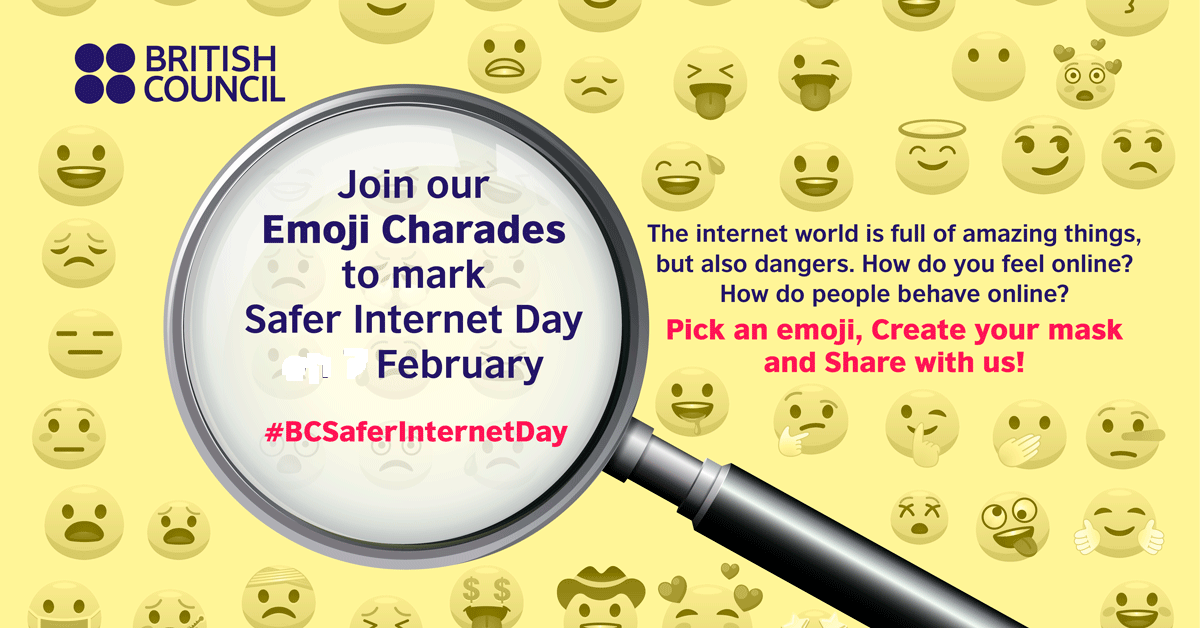
About the British Council
The British Council is the UK’s international organisation for cultural relations and educational opportunities. We build connections, understanding and trust between people in the UK and other countries through arts and culture, education and the English language. In 2019-2020 we reached over 75 million people directly and 758 million people overall including online, broadcasts and publications. Founded in 1934 we are a UK charity governed by Royal Charter and a UK public body. We receive a 14.5 per cent core funding grant from the UK government. www.britishcouncil.org
Contact Information
Name: Lamia El Idrissi
Email: lamia.elidrissi@britishcouncil.org
Job Title: Senior Communications Manager
National Advertising Review Board Finds WhatsApp Encryption Messaging Claims Supported
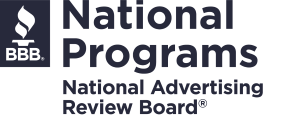
New York, NY – February 6, 2023 – A panel of the National Advertising Review Board (NARB), the appellate advertising law body of BBB National Programs, determined that WhatsApp, LLC provided a reasonable basis for two express claims for its WhatsApp messaging service analogizing SMS text messages to “open mail” as used in the advertiser’s television commercial titled “Doubt Delivered”:
- “Text messages are just like open pieces of mail, they’re all open.”
- “Every text message that individuals send is just as open as opened letters.”
The advertising at issue had been challenged before the National Advertising Division (NAD) by CTIA, a trade association. Following NAD’s decision (Case No. 7107), WhatsApp appealed, and CTIA cross-appealed, certain NAD findings and recommendations.
In agreement with NAD, the NARB panel determined that the principal message conveyed by the Doubt Delivered commercial is that SMS text messages, not protected by end-to-end encryption, are more vulnerable to being intercepted/read by unauthorized parties than are messages sent through technologies employing end-to-end encryption. Thus, the panel concluded that the two “open mail” claims are properly supported by the advertiser’s evidence as used in the present context.
In the underlying decision, NAD concluded that three unsupported implied claims were found communicated by the Doubt Delivered commercial and recommended that they be discontinued. However, the NARB panel reached a different conclusion and determined that there were no implied messages regarding wireless carriers in the Doubt Delivered commercial.
WhatsApp thanked the panel for “its careful consideration and the self-regulatory process that led to this decision.”
All BBB National Programs case decision summaries can be found in the case decision library. For the full text of NAD, NARB, and CARU decisions, subscribe to the online archive.
About BBB National Programs: BBB National Programs, a non-profit organization, is the home of U.S. independent industry self-regulation, currently operating more than a dozen globally recognized programs that have been helping enhance consumer trust in business for more than 50 years. These programs provide third-party accountability and dispute resolution services that address existing and emerging industry issues, create a fairer playing field for businesses, and a better experience for consumers. BBB National Programs continues to evolve its work and grow its impact by providing business guidance and fostering best practices in arenas such as advertising, child-and-teen-directed marketing, data privacy, dispute resolution, automobile warranty, technology, and emerging areas. To learn more, visit bbbprograms.org.
About the National Advertising Review Board (NARB): The National Advertising Review Board (NARB) is the appellate body for BBB National Programs’ advertising self-regulatory programs. NARB’s panel members include 85 distinguished volunteer professionals from the national advertising industry, agencies, and public members, such as academics and former members of the public sector. NARB serves as a layer of independent industry peer review that helps engender trust and compliance in NAD, CARU, and DSSRC matters.
Contact Information
Name: Abby Hills
Email: press@bbbnp.org
Job Title: Director of Communications
703-247-9330
Maryland Saved Medicare More than $780 Million Using New Approach to Payment

Global budgets focused on the total cost of care found to reduce costs and improve quality

The state of Maryland saved Medicare more than $780 million, reduced preventable hospital admissions, and decreased emergency department visits in the first three years of a new payment model that offers incentives and supports to a range of providers to transform care in the state, according to Mathematica’s latest evaluation report and findings at a glance. Maryland and the Centers for Medicare & Medicaid Services partnered to test the Maryland Total Cost of Care Model combines the use of global budgets, which fix the amount of revenue a hospital will receive in an upcoming year, with incentives to reduce the cost of care provided to Medicare beneficiaries from all providers, not just care from hospitals. Maryland and the Centers for Medicare & Medicaid Services partnered to test the model.
“Global budgets and the newly added accountability for all care costs are big changes to the way hospitals are paid,” said Gregory Peterson, project director and principal researcher at Mathematica. “Our evaluation of the Total Cost of Care Model finds that this new payment model is having a strong influence on hospital outcomes in Maryland and holds promise for other states looking to control rising health care costs and improve quality.”
Through the Maryland All-Payer Model, which started in 2014, Maryland became the first state to implement all-payer global budgets for most of its hospitals. In 2019, the Total Cost of Care Model broadened incentives and supports to engage a wide range of providers beyond hospitals to improve costs and quality of care, becoming one of the first states to hold hospitals accountable for the total cost of care for Medicare beneficiaries. Over the life of the Total Cost of Care Model, the state has committed to generating $2 billion in Medicare savings (by 2026).
Mathematica’s evaluation of the Maryland Total Cost of Care Model shows that it had the following favorable effects in its first three years (2019 to 2021).
- It reduced total Medicare fee-for-service spending by 2.5 percent, leading to a $781 million reduction in total spending.
- It substantially reduced rates of all-cause acute care hospital admissions (by 16.1 percent) and moderately reduced emergency department visits (by 3.8 percent).
- It improved several quality-of-care measures, including reducing potentially preventable admissions (by 16.1 percent), reducing the likelihood of an unplanned readmission to the hospital (9.5 percent), and increasing timely follow-up after hospital discharge (2.5 percent).
- The model did not affect patients’ ratings of their personal doctor or the hospitals in which they received care, suggesting that hospitals’ efforts to improve efficiency have not come at the expense of lower patient ratings.
Although the model decreased total Medicare spending (largely from decreases in hospital spending), there was a substantial increase in non-hospital spending in 2021 that lessened the overall Medicare savings that year. Future analysis will determine whether this increase was an aberration or a new trend.
The Maryland Total Cost of Care Model’s approach to holding hospitals accountable for Medicare costs from all providers is meant to encourage them to engage in broader care improvement strategies and help transform care beyond their walls. Maryland’s approach can provide other states valuable lessons on this strategy for controlling rising health care costs while improving quality. Currently, Pennsylvania and Vermont are experimenting with variations of global budgets. Mathematica will next evaluate impacts in the fourth year of the model as well as take an in-depth look at what hospitals and providers are doing to achieve cost savings and improved outcomes. Learn more about the evaluation of this model and keep up to date on future research here.
About Mathematica: Mathematica is a research and data analytics consultancy driven by a mission to improve well-being for people and communities. We innovate at the intersection of data science, social science, and technology to translate big questions into deep insights. Collaborating closely with decision makers and changemakers, we’re reimagining the way the world collects, analyzes, and applies data to solve urgent challenges.
Contact Information
Name: Christal Stone Valenzano
Email: cstone@mathematica-mpr.com
Job Title: Sr. Communications Specialist
National Advertising Division Finds ACCO Brands’ Coronavirus and COVID-19 Elimination Claims Substantiated with Modified Testing Disclosure
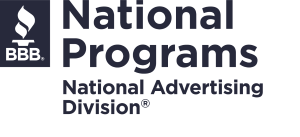
National Advertising Division Finds ACCO Brands’ Coronavirus and COVID-19 Elimination Claims Substantiated with Modified Testing Disclosure
New York, NY – February 2, 2023 – Following an inquiry by the National Advertising Division (NAD) of BBB National Programs, ACCO Brands USA, LLC modified the disclosure used in connection with a health-related efficacy claim on the ACCO Brands website that its TruSens Air Purifier is “effective at eliminating 99.9% of the airborne coronavirus or COVID-19” to clarify the material limitations of the claim, which NAD found was supported as qualified.
Through its routine monitoring program, NAD challenged the claim that:
“TruSens eliminates 99.99% of airborne coronavirus*” (*Results from independent third-party testing using aerosolized airborne concentration of human coronavirus 229E over a two-hour period in a sealed chamber. HCoV-299e is a well-established surrogate for SARS-CoV-2) next to a picture of SARS-CoV-2 virus being filtered through the TruSens device.
NAD’s inquiry focused on whether consumers who viewed the advertiser’s website would reasonably take away the message that the TruSens Air Purifier is effective in killing 99.99% of SARS-CoV-2 virus without seeing the disclosure that testing of the product was on a coronavirus surrogate.
Health and safety concerns are a top priority for NAD’s monitoring efforts, with particular attention focused on express or implied claims that advertised products can protect consumers against COVID-19. Claims as to the efficacy of air purifiers against SARS-CoV-2 during an ongoing pandemic are especially impactful because consumers cannot verify the truthfulness of such claims for themselves.
During the proceeding, the advertiser modified the disclosure to state: “Results from independent third-party testing using HCoV-229E, a human coronavirus with similar shape and size to COVID-19, which was aerosolized over a two-hour period in a sealed chamber. HCoV-229E is a well-established surrogate for COVID-19.”
NAD determined that ACCO Brands’ testing provided a reasonable basis for the challenged claim, “TruSens eliminates 99.99% of airborne coronavirus” together with a clear and conspicuous disclosure of the material limitations of the claim (testing on a surrogate and length of time to achieve the result) in similar size, text, and font in close proximity to the claim. NAD also found that ACCO Brands products effectively filter SARS-Cov-2, providing additional support for the advertiser’s claim that “TruSens Air Purifier is effective at eliminating 99.99% of airborne coronavirus or COVID-19.”
In its advertiser statement, ACCO Brands thanked NAD for “its careful and professional review of the substantiation for TruSens’ claim to eliminate 99.99% of airborne coronavirus” and stated that it “will clarify the disclosures accompanying the claim in keeping with the recommendations expressed in NAD’s decision.”
All BBB National Programs case decision summaries can be found in the case decision library. For the full text of NAD, NARB, and CARU decisions, subscribe to the online archive.
About BBB National Programs: BBB National Programs, a non-profit organization, is the home of U.S. independent industry self-regulation, currently operating more than a dozen globally recognized programs that have been helping enhance consumer trust in business for more than 50 years. These programs provide third-party accountability and dispute resolution services that address existing and emerging industry issues, create a fairer playing field for businesses, and a better experience for consumers. BBB National Programs continues to evolve its work and grow its impact by providing business guidance and fostering best practices in arenas such as advertising, child-and-teen-directed marketing, data privacy, dispute resolution, automobile warranty, technology, and emerging areas. To learn more, visit bbbprograms.org.
About the National Advertising Division: The National Advertising Division (NAD) of BBB National Programs provides independent self-regulation and dispute resolution services, guiding the truthfulness of advertising across the U.S. NAD reviews national advertising in all media and its decisions set consistent standards for advertising truth and accuracy, delivering meaningful protection to consumers and leveling the playing field for business.
Contact Information
Name: Abby Hills
Email: press@bbbnp.org
Job Title: Director of Communications
National Advertising Division Recommends Charter Communications Discontinue or Modify “Leading” ISP Claim for Spectrum Internet

New York, NY – February 1, 2023 – The National Advertising Division (NAD) of BBB National Programs recommended that Charter Communications, Inc. discontinue or modify the claim that Spectrum is America’s leading internet service provider (ISP). NAD also recommended that Charter discontinue the claim “Advanced WiFi. A better kind of internet” or modify it to avoid conveying a message of superiority over Spectrum’s competitors.
The claims at issue, which appeared across several forms of media, were challenged by AT&T Services, Inc.
America’s “Leading” ISP Claims
Advertisers must be careful to avoid conveying unintended comparative superiority messages against the products or services of their competitors if such message is not supported.
With respect to the messages reasonably conveyed by the “America’s leading internet provider” claim in the challenged advertisements, NAD determined that while consumers may understand the claim as relating to market share, in the context of the challenged advertisements consumers may also reasonably interpret the message to be that Spectrum Internet:
- Has the most subscribers of any ISP in America;
- Provides the fastest speeds of any ISP in America; and
- Is superior to all other ISPs with respect to reliability and security.
Because these messages were not supported by Charter’s evidence, NAD recommended that Charter discontinue claims that Spectrum Internet is America’s leading internet service provider or modify the claim or its use of the claim to avoid conveying such messages.
NAD noted that nothing in its decision prevents Charter from promoting that Spectrum Internet has the most subscribers among ISPs against which it competes or making claims of comparative performance superiority for which it has support.
“Better Kind of Internet” Claims
NAD determined that the claim that Spectrum offers “Advanced WiFi. A better kind of internet,” conveys the message that WiFi services with enhanced security and the ability to handle up to 200 devices are “better” than services without those features. Further, NAD found that in the context of the challenged advertisement, this claim also reasonably conveys a message of superiority over Spectrum’s competitors – an unsupported message.
Therefore, NAD recommended that Charter discontinue the claim “Advanced WiFi. A better kind of internet” or modify its advertising to avoid conveying the message that Spectrum Internet provides an internet experience that is superior to the internet experience provided by other ISPs because Spectrum’s WiFi is advanced relative to other ISP’s WiFi.
In its advertiser statement, Charter stated that while it “disagrees” with certain aspects of NAD’s decision, “it is a strong supporter of self-regulation and will comply with NAD’s recommendations.”
All BBB National Programs case decision summaries can be found in the case decision library. For the full text of NAD, NARB, and CARU decisions, subscribe to the online archive.
About BBB National Programs: BBB National Programs, a non-profit organization, is the home of U.S. independent industry self-regulation, currently operating more than a dozen globally recognized programs that have been helping enhance consumer trust in business for more than 50 years. These programs provide third-party accountability and dispute resolution services that address existing and emerging industry issues, create a fairer playing field for businesses, and a better experience for consumers. BBB National Programs continues to evolve its work and grow its impact by providing business guidance and fostering best practices in arenas such as advertising, child-and-teen-directed marketing, data privacy, dispute resolution, automobile warranty, technology, and emerging areas. To learn more, visit bbbprograms.org.
About the National Advertising Division: The National Advertising Division (NAD) of BBB National Programs provides independent self-regulation and dispute resolution services, guiding the truthfulness of advertising across the U.S. NAD reviews national advertising in all media and its decisions set consistent standards for advertising truth and accuracy, delivering meaningful protection to consumers and leveling the playing field for business.
Contact Information
Name: Abby Hills
Email: press@bbbnp.org
Job Title: Director of Communications
Michelin Survey Reveals Consumer Excitement, Needs To Enable EV Revolution
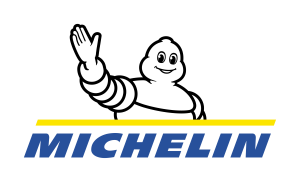
- Roughly one-quarter (27%) of Americans with traditional vehicles will consider EV purchase for next car
- Affordability (58%) and range anxiety (42%) remain top areas of concern for traditional vehicle owners
- 5 in 6 (83%) American drivers[1] unsure what type of tire an EV needs, including half (52%) of current EV owners
GREENVILLE, S.C., Jan 31, 2023 – As the EV revolution accelerates through the U.S., a recent survey from Michelin[2] shows concerns over the unknown remain an obstacle for many Americans, even EV owners.
“For 130 years, Michelin has been obsessed with mobility that maximizes the customer experience,” said Alexis Garcin, president and CEO of Michelin North America, Inc. “We are passionate about innovation, and that has positioned us to accelerate the EV transformation. Our research and development teams continue to launch new technologies that improve rolling resistance, maximizing performance and minimizing the environmental impact of mobility.”
According to the Global EV Outlook 2022 report, sales of electric vehicles could represent 50% of the market by 2030. However, Michelin found that affordability (59%), range anxiety (43%), and a home charging setup (37%) remain top areas of concern for traditional vehicle owners. Still, two-thirds of EV owners agree (67%) driving performance is better with EVs over traditional vehicles, and 82% are likely to consider buying another EV as their next vehicle.
While EVs may feel new and unknown for consumers, Michelin has been anticipating and preparing for the EV transformation for more than 40 years. To accelerate the transition, consumers will have to reset their view of tires. No longer just one of many vehicle features; they are now the most important range extending feature of an EV. Michelin sees an opportunity to help consumers on this journey. Confidence in tire performance, including the ability to drive in all types of weather with an EV, is a top priority among U.S. drivers (35%). Yet most are unsure of what tire an EV needs (83%).
- If longevity is the primary concern, look for tires with significant wear performance like the MICHELIN®Defender®2 tire.
- Knowing that quieter EV engines highlight tire noise on uneven or rough road surfaces, EV-specific tires like the MICHELIN® Pilot® Sport EV often come with acoustic dampening foam or other advanced technology designed to help reduce noise.
- Lastly, EV-specific tires like the MICHELIN® Pilot® Sport EV are designed for summer wet and dry conditions that respond to the instant torque of EVs and deliver the ultra-high performance EVs are known for. Drivers with summer tires who are concerned about all-season performance would best be served by an all-season offering like the MICHELIN® Pilot® Sport All-Season 4 tire, which delivers elevated performance across climates.
As automakers create more EV models, Michelin is committed to leading the charge in optimizing tire performance for all EVs. To find out why 8 out of 10 EV manufacturers use Michelin tires, please visit: https://www.michelinman.com/auto/electric-vehicle-tires.
[1] Drivers are defined as vehicle owners and lessees for this survey.
[2] Methodology: All figures, unless otherwise stated, are from YouGov Plc. Total sample size was 1,171 adults, among whom 957 own or lease a vehicle. Fieldwork was undertaken between Sept. 30th, 2022, and Oct. 3rd, 2022. The survey was carried out online. The figures have been weighted and are representative of all US adults, aged 18 years and older.
Contact Information:
Name: Christian Fisher
Email: christian.fisher@michelin.com | www.michelinmedia.com
